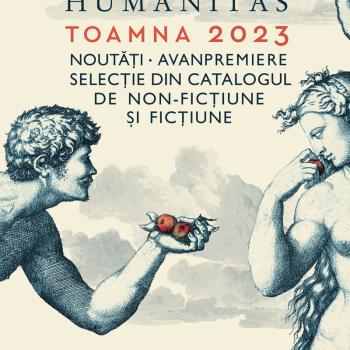The first two days of this week, I was selected for jury service. This was my first time selected. I wished I could have recorded some of the ways that the lawyers explained the criteria of evidence during the voir dire, explaining that “beyond reasonable doubt” doesn’t mean “beyond all doubt” and other things that I have regularly discussed in relation to matters of history.
I suspect that it was largely because of my academic area that I was a bit of a nuisance, and was not happy to simply see whether we all agreed even before engaging in discussion (I wanted to hear and learn from other perspectives and give others the chance to hear and learn from mine, before we decided what we really think in any kind of definitive way), and wanted to make sure in particular that, even if it was not evidence that places a particular matter beyond reasonable doubt, testimony most certainly is evidence. I got the impression that some other jurors held the view that, when it is one person’s word against another, with no physical evidence, then there is simply no way to decide.
And that is not the case, and the lawyers and judge emphasized as much in introductory remarks. And I felt that, even if in the end we still felt there might be reasonable doubt about what happened, if any of us were victims of a burglary, where someone forced their way into our home when we were there, it might well be the case that it would be our testimony alone that was evidence of how the accused individual got into our premises. Whether my testimony or yours would be found convincing, or sufficient, is another matter, but it would be evidence.
This was obviously a criminal case, and as I’ve said before, history in general, and ancient history in particular, makes for more apt comparisons to civil court procedures, in which the standard is “more probable than not” rather than “beyond reasonable doubt.”
History is not a science, and the levels of certainty that were offered on the basis of DNA evidence are not comparable to the levels of certainty that historians can offer in their conclusions.
But that doesn’t make their conclusions “weak” or something to be dismissed.
I was particularly fascinated by our discussions on the jury of a variety of possible scenarios regarding what had transpired. I wondered what limits there were, if any, on the appropriateness of speculation. We were clearly instructed that, if two theories are reasonable in light of the evidence, then we must go with the one that finds the defendant not guilty. But the crux of the matter, in court and in history, is what makes a theory reasonable.
I wonder if mythicists think that they, or historians, have received instructions to the effect that, if two theories are reasonable in light of the evidence, you should opt for the one that finds Jesus to not be historical. I have discussed whether mythicist theories are reasonable before, but that is, as I said, a separate matter. My point here is that there is no “presumption of ahistoricity” (or if you prefer, “presumption of innocence of historicity”) in the study of ancient history. Ancient history is not like a criminal trial, but like a civil one, and it is sufficient for the historian to find the theory of Jesus’ historicity to be more probable than not.
The instructions and/or presumptions about standards of evidence are crucial. There are, I am certain, plenty of instances in which someone will be found not guilty because there is reasonable doubt, where they would have been found guilty if the question had been merely which of several scenarios is more probable. This is why, in the debates I get into here about mythicism, I am always concerned not to jump right into discussing the evidence, but to discussing assumptions and methods. The aim of many mythicist apologists is to try to introduce reasonable doubt, thinking that if they can do that it might just be enough. But even if they come up with a theory that is not completely wacky and that is compatible with the evidence, the ancient historian must ask not just if it is possible but if it is probable.
“Probably” is not enough in a criminal trial, and “possibly” is not enough in the study of history.
I am glad to have had the privilege of serving on a jury in this way. And I’m glad to have the chance to reflect on how the experience relates to my own academic interests and area of expertise. I’ve used courtroom analogies, without having been directly involved in courtroom proceedings until now. This new experience has both confirmed many things that I had thought, as well as giving me much that is new to think about.
Have you served on a jury? Do you have thoughts on the analogy between courtroom decisions and historical investigation?












